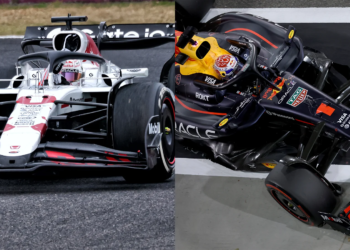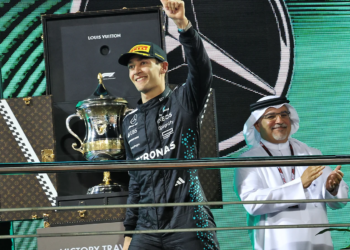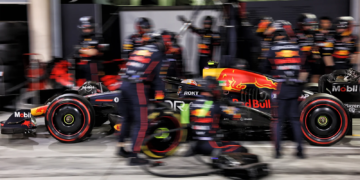Renault says a potential freeze on engine development must suit the championship and not be implemented solely as a response to Honda’s impending exit.
Honda will leave Formula 1 at the end of 2021 but Red Bull has expressed a desire to acquire its IP for both of its teams – though has outlined a freeze on development as an essential stipulation.
Mercedes has backed a freeze from the outset while Ferrari has now softened its stance.
Renault, Formula 1’s other power unit manufacturer, also says it is supportive of a freeze but stressed it cannot be done solely to satisfy Red Bull’s needs.
“We were always pushing for a freeze before the introduction of a new set of regulations,” said Renault’s Executive Director Marcin Budkowski.
“If you have to develop the current engines and develop a new technology [at the same time] you don’t want to have to suddenly hire 100 people and put them on a new development while you continue developing your engine.
“We think it’s unreasonable to have two development programmes at the same time.
“We think the right way to do [a freeze] is roughly three years [before introducing new regulations], so at the time we were actually advocating such a solution.
“Interestingly, Honda was against it, against limiting dyno hours, Honda was against freezing development, and obviously through the voice of Red Bull, who were then voting in the different governance committees.
“It’s interesting now Red Bull is very much in favour of a freeze and it’s interesting for us to see.
“We’re not opposed to this as long as it is the right calendar. The regulations, as are set today, and until they change that’s what applies, is we’re severely restricting development from 2023, almost akin to a freeze, as there’s no more development allowed on ICEs in 2023, and the new set of regulations [are scheduled] for ‘26.”
Budkowski outlined that any decision between the relevant stakeholders must be beneficial for the entire championship.
“I think there’s a lot of talk about anticipating these [new] regulations by one year which I think for F1 can make sense if we find the right set of regulations, potentially a better set of regulations,” he said.
“At that stage you have to freeze at some point in ‘22, whether [that is at the] end of ‘22, mid-‘22, it will also be discussed.
“We’re in line with this, it’s a position we’ve always defended, however we can’t say now we’re going to freeze from ‘21 for example, it’s too late, we’ve engaged in engine programmes of a certain life cycle, we’ve pushed before to freeze early.
“The decision of the sport was not to freeze early, now we’ve invested time and effort into a new specification of engines, well, we’re happy to find a compromise as long as it’s a reasonable compromise.
“That’s our position and to be honest it’s been consistent throughout.
“Let’s make some compromise, if you want, to the regs, not only because suddenly Honda decided that oh it was too expensive to do a Formula 1 engine, well they were not of this opinion before.
“Let’s find the right thing for the sport, let’s find the right engine formula for the future, and at the right time to introduce it.”









